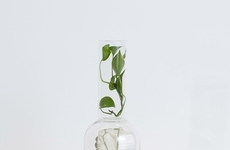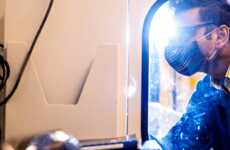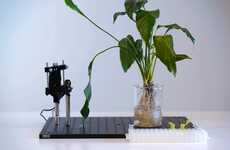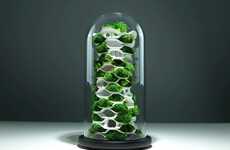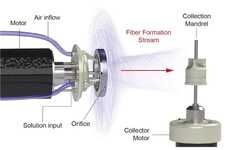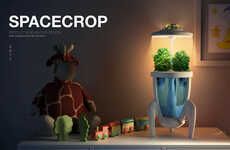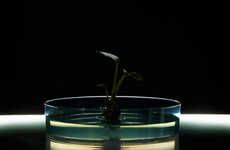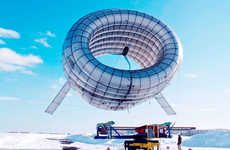
This Synthetic Biological Leaf Has Amazing Scientific Impact
Vasiliki Marapas — July 26, 2014 — Tech
References: julianmelchiorri & dezeen
RCA graduate Julian Melchiorri developed a synthetic biological leaf, titled the 'Silk Leaf,' that can produce oxygen from carbon dioxide just like a regular plant can. He posits that his design could facilitate space travel over longer distances.
"Plants don't grow in zero gravity. NASA is researching different ways to produce oxygen for long-distance space journeys to let us live in space. This material could allow us to explore space much further than we can now."
The project is part of the Royal College of Art's Innovation Design Engineering course (in collaboration with Tufts University silk lab) and features chloroplasts suspended in a cast of silk protein. Melchiorri notes that the material has "an amazing property of stabilizing molecules," allowing the synthetic material to photosynthesize as a living plant does.
"Plants don't grow in zero gravity. NASA is researching different ways to produce oxygen for long-distance space journeys to let us live in space. This material could allow us to explore space much further than we can now."
The project is part of the Royal College of Art's Innovation Design Engineering course (in collaboration with Tufts University silk lab) and features chloroplasts suspended in a cast of silk protein. Melchiorri notes that the material has "an amazing property of stabilizing molecules," allowing the synthetic material to photosynthesize as a living plant does.
Trend Themes
1. Synthetic Biological Leaves - The development of synthetic biological leaves presents an opportunity for sustainable oxygen production and agricultural practices.
2. Space Exploration - The use of synthetic biological leaves could potentially revolutionize long-distance space travel by providing a renewable source of oxygen.
3. Materials Innovation - The creation of innovative materials such as the silk-based synthetic leaves opens up possibilities for various industries, including architecture, fashion, and biomedical applications.
Industry Implications
1. Aerospace - The aerospace industry can benefit from the use of synthetic biological leaves to support sustainable life support systems for long-duration space missions.
2. Agriculture - The agricultural industry can leverage synthetic biological leaves to improve crop yields and reduce dependency on traditional farming practices.
3. Material Science - The field of material science can explore the use of synthetic biological leaves for developing new sustainable materials with properties similar to living organisms.
3.2
Score
Popularity
Activity
Freshness


